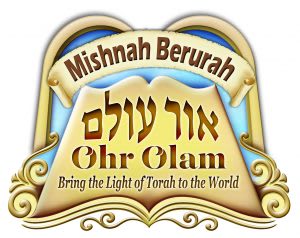Chinuch of Minor Children in Shemiras Shabbos - Part 1

Question: Is it permitted to place a child by a light-switch or an air-conditioner knob so that the child can turn it off or on or higher or lower?
Discussion: The obligation of parents to teach their children Torah and instruct them on how to observe the mitzvos properly, the concept of chinuch, is basic to all of Yiddishkeit.218 Particularly when it comes to Shemiras Shabbos, the foundation of Jewish life, it is imperative that parents teach their children about the concepts of Shabbos and instruct their children as to how to keep Shabbos properly. But for chinuch to be successful it must be age appropriate, as starting too early will not be effective and beginning too late may require undoing established behavior. At what age does the mitzvah miderabanan of chinuch for Shabbos observance begin?
There are two components of Shabbos observance, loosely divided between Zachor and Shamor. Zachor refers to the sanctity and essence of the Shabbos day, and what it means to the Jewish people and their relationship with Hashem. Since a child below the age of six or seven219 does not usually reach the level of comprehension required to understand these concepts, the mitzvah of chinuch in zachor only begins once the child reaches that age. This child is referred to as a bar-chinuch, able to understand concepts, which means that his parents are now required to begin training him in the zachor component of Shabbos observance220. The shamor part of Shabbos observance, however, which refers to the practical rules and regulations of what may or may not be done on Shabbos, can be taught to a child at a much earlier age, often as low as the age of three. As long as a child is old enough to understand the idea that some activities are forbidden on Shabbos [although he clearly does not understand the reasons or ideas behind the restrictions], and once told would actually try to refrain from doing so on Shabbos, he is considered a bar-havanah, able to understand restrictions, which means that his parents are now required to begin training him in the shamor portion of Shabbos observance221. A baby or toddler below the age of three222 is considered a lav-bar-havanah, and neither component of Shabbos observance applies to him.
According to some poskim, in addition to the general mitzvah miderabanan of chinuch [which applies to all the mitzvos of the Torah] there is an additional min ha-Torah source that applies specifically to Shabbos. This is based on the verse in the Torah223 that says that on Shabbos “You should not do any Labor, you and your son and your daughter”, which is interpreted by the Mechilta224 and some Rishonim225 to mean that there a specific command min ha-Torah for parents to ensure that a minor son or a daughter does not violate Shabbos. But the Rambam and other Rishonim do not quote this verse and Mechilta as practical halachah226, which means that in their opinion there is no specific min ha-Torah source that obligates parents to ensure that their children keep the restrictions of Shabbos227.
But all poskim agree that even if parents are not obligated min ha-Torah to prevent their minor children from violating Shabbos, it is forbidden for a parent [or any other adult] to command, encourage or prod, directly or indirectly, a minor child of any age, including a child who is a lav-bar-havanah, to violate the Shabbos [or any other Torah or miderabanan prohibition]. Thus, it is forbidden min ha-Torah for a parent to instruct or encourage his minor child to turn on a light in the house or to bring the newspaper from the street on Shabbos228.
218. Min ha-Torah the obligation of chinuch is limited to a father teaching his child Torah, informing him about Yetzias Mitrayim and about Kabbolas ha-Torah at Har Sinai. Miderabanan, a father [and mother] are obligated to train and guide their children in observing all of the mitzvos, both the positive and the negative ones, and all of the additional derabanan commandments and statutes.
------------------------------
219. Each child according to his or her level of comprehension; see Mishnah Berurah 70:6; 269:1. Some children do not reach this stage until they are 8 or 9. Sometimes, a child could reach this level as early as age five; see Mishnah Berurah 640:4.
220. This includes listening to Kiddush and Havdalah, partaking of the seudos with lechem mishneh, etc.
221. Mishnah Berurah 343:3, as explained by Chut Shani 95:12.
222. This is the average age. There are some above-average two-year-olds who can be considered bar-havanah and some below-average 4-year-olds who can be considered lav-bar-havanah.
223. Shemos 20:10; Devorim 5:14.
224. Quoted by Rashi, Shemos 20:10. Sha’ar ha-Tziyun 334:54 explains that this verse refers to a child who desecrates Shabbos to benefit his father, such as putting out a fire that is consuming his father’s property, but not to a child who desecrates Shabbos for his own benefit or for the benefit of others.
225. See Ramban, Shemos 20:10.
226. See Sefas Emes, Shabbos 121b and Achiezer 3:81 for a lengthy review of this subject.
227. See Shulchan Aruch ha-Rav 266:10 and Beiur Halachah 266:6, s.v. hagah, who rule in accordance with this opinion.
228. O.C. 343:1 and Mishnah Berurah 4.
